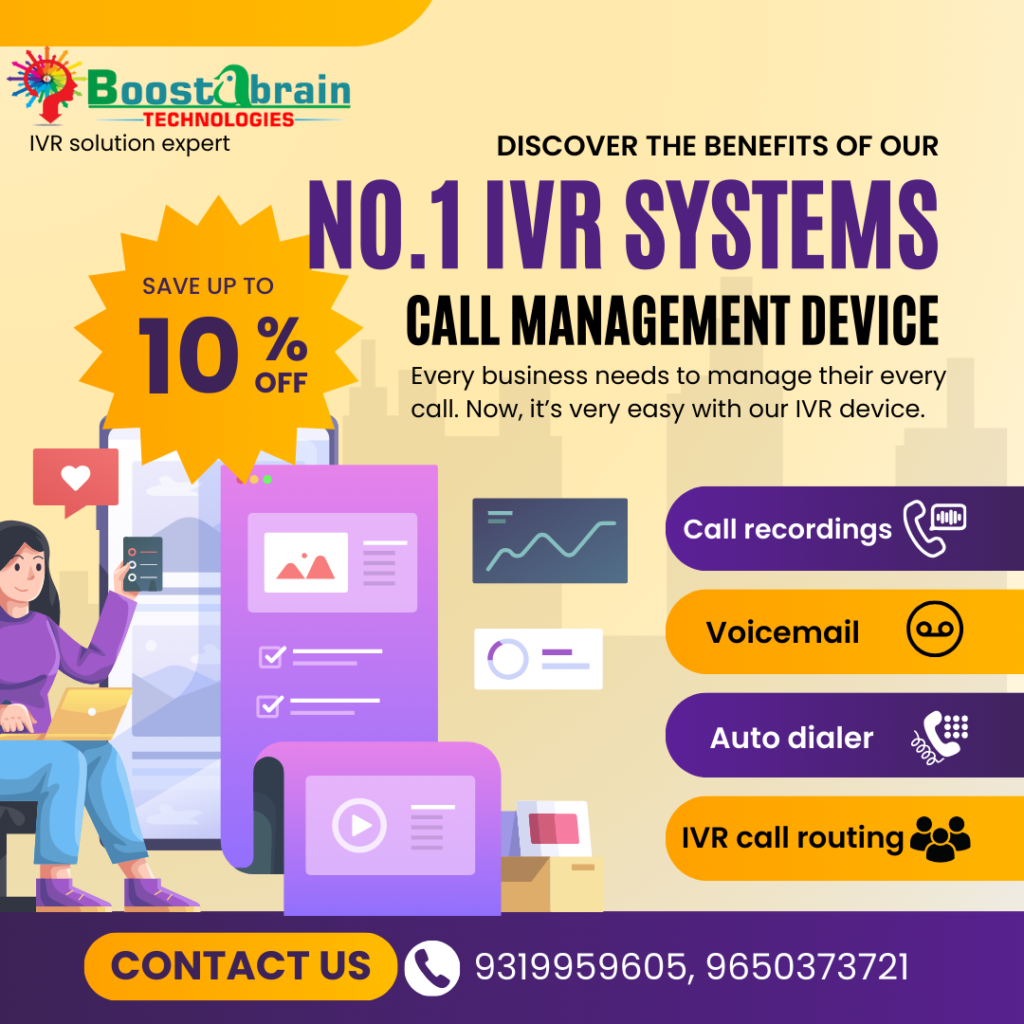
IVR in hospitality
Introduction
In today’s fast-paced world, exceptional customer service is crucial for success in the hospitality industry. Interactive Voice Response (IVR) systems have emerged as a game-changer, transforming how hotels, restaurants, and other hospitality businesses manage guest interactions. This post explores how IVR systems are revolutionizing the hospitality sector, offering insights into their benefits, implementation strategies, and future trends.
What is IVR?
Interactive Voice Response (IVR) is an automated telephony system that interacts with callers through pre-recorded voice prompts and touch-tone inputs. It allows businesses to handle customer inquiries efficiently by routing calls, providing information, without the need for live agents.
Benefits of IVR in Hospitality
- Enhanced Guest Experience
- Seamless Check-ins and Check-outs: Hotels can streamline the check-in and check-out processes, allowing guests to manage their reservations via phone, reducing wait times and improving overall satisfaction.
- Instant Access to Information: IVR systems provide guests with immediate information about room availability, dining options, and special offers, enhancing their overall experience.
- Improved Operational Efficiency
- Reduced Call Volume for Staff: By automating routine inquiries and requests, IVR systems free up staff to focus on more complex and personalized guest interactions.
- 24/7 Availability: IVR systems ensure that guests can access information and services at any time, even outside of regular business hours.
- Cost Savings
- Lower Operational Costs: Implementing IVR can reduce the need for additional staff, lowering labor costs and increasing profitability.
- Efficient Resource Management: With IVR handling routine tasks, staff can allocate resources more effectively and address higher-value guest needs.
IVR in Hotels
Hotels are leveraging IVR systems to enhance guest services and streamline operations. Here’s how:
- Reservation Management: Guests can make, modify, or cancel reservations through an automated system, reducing the burden on front desk staff.
- Feedback Collection: Post-stay surveys can be automated via IVR, providing valuable feedback to improve services.
IVR in Restaurants
Restaurants are also benefiting from IVR systems in various ways:
- Reservation Systems: Automate table bookings and confirmations, reducing wait times and improving customer satisfaction.
- Order Placement: Enable customers to place takeout or delivery orders through IVR, streamlining the ordering process.
- Customer Service: Handle common inquiries such as menu details, opening hours, and special promotions automatically.
Implementing IVR in Hospitality
To successfully implement an IVR system in a hospitality setting, consider the following steps:
- Define Objectives: Identify what you want to achieve with IVR, such as reducing call volume or improving guest service.
- Design the Call Flow: Create a user-friendly call flow with clear and concise prompts to ensure a smooth experience for guests.
- Choose the Right Provider: Select an IVR provider that offers features tailored to the hospitality industry, such as integration with property management systems (PMS) or reservation software.
- Train Your Staff: Ensure that your team is well-trained on the new system to handle any issues that may arise and provide a seamless guest experience.
Conclusion
IVR systems are transforming the hospitality industry by enhancing guest experiences, improving operational efficiency, and reducing costs. Whether you operate a hotel, restaurant, or another hospitality business, implementing an IVR system can provide significant benefits and help you stay ahead of the competition. As technology continues to advance, staying informed about the latest trends and innovations will ensure you make the most of your IVR investment.
For more information on how IVR can benefit your business, contact us today
Click here to CHAT